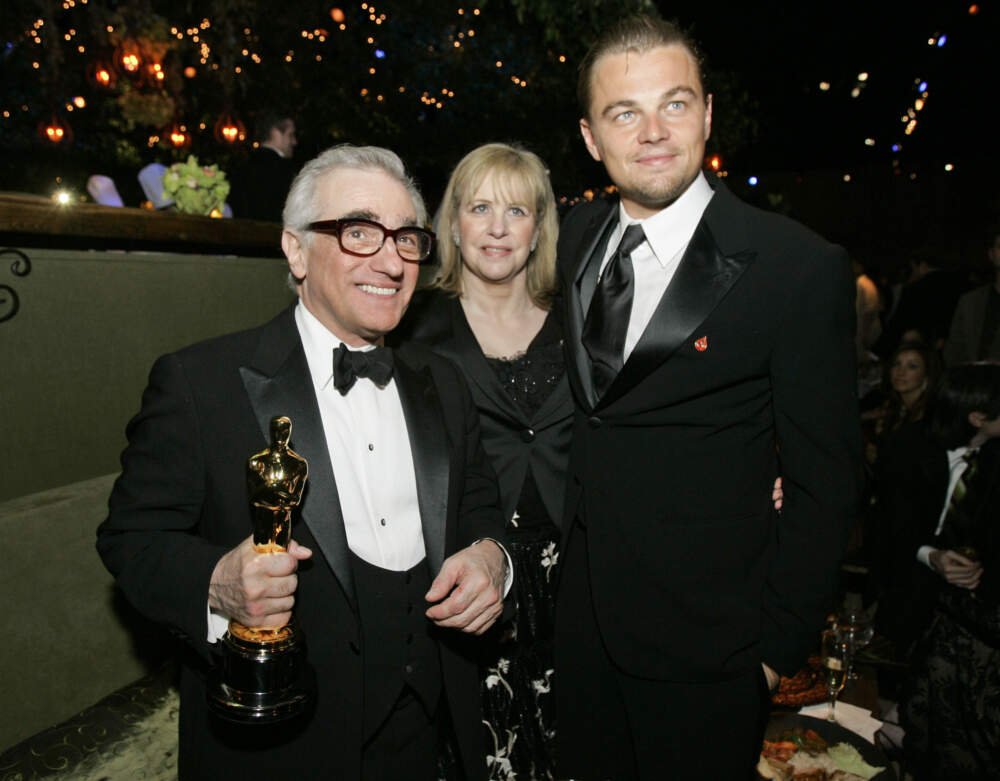Advertisement
Set in Boston
Film experts debate whether 'The Departed' stays true to late 20th century Boston
Resume
Ask someone to name a few Boston movies, and "The Departed" is likely to be on that list.
Though Martin Scorsese's 2006 crime thriller may not have been his best film, said film critic Ty Burr, it managed to depict for a wider audience a version of Boston defined by gritty criminal activity pulsing beneath a recognizably academic and historic city. It's the film that earned Scorsese his first Academy Award's Best Director recognition, and he executed it in a style that would replicated for years to come.
"To me, this is the peak of the Boston noir genre of film," said Burr.
But does the film stand the test of time? Or has it fallen into cliché?
For Radio Boston's “Set in Boston” series, we spoke with three film experts — Ty Burr, Dominga Martin and Casey Sherman — about their interpretations, and the film's social impact.
Interview Highlights
On the film’s retelling of Boston’s history and depiction of locals:
Sherman: "I've been covering organized crime here in Boston for 30 years. What you saw on the screen really happened in many ways. We've come a long way since then, but from an organized crime angle, [the film] is very over-the-top. But so was the gang war in Boston from the 1960s all the way up to the early 1990s, when you had over 157 people killed in a gang war. It's rooted in truth, but it's operatic. And I do think it created this stereotype of a Boston gangster."
Martin: "They did have someone from Boston in the writers' room. [They captured] the nuance of the way Bostonians speak. [We] say 'cold cuts.' 'You're a worker.' 'Supper.' Some of us still say 'tonic' instead of 'soda.' "
Burr: "But I do think that [screenwriter William Monahan] slips a little bit. I've lived in South Boston for 20 years, and that dialogue in the script — 'down Providence' and 'up Gloucester' — nobody talks that way in Southie."
On what’s missing from the film:
Martin: “What's missing in all of these Boston stories is the Black perspective. This is a very racist city. Former Mayor [Marty Walsh] said racism here is a public health crisis. So as a filmmaker, I would say what's missing in all of them is us."
Burr: "One of the things that makes this film feel real and honest in a scuzzy, nasty way is that it is truthful. Boston movies [avoid] addressing the racial situation in Boston. It's something that we still have trouble acknowledging. You have one Black character in the movie; you could go in that direction further, but it's not what this movie is about. It's there, but it's part of the backdrop, part of the language.
"I think a great Boston movie would be about the busing era, and it will never be made, because everybody here is afraid to make it." (Editor's note: Small, independent films have told the story of busing, but no major blockbusters.)
On whether or not 'The Departed' has stood the test of time:
Burr: "['The Departed'], I think, is kind of the high watermark of the genre, before it starts turning into parody, before it starts becoming a Boston movie. It's right at the edge of becoming a little cliché.
"[At a live screening of the movie], as I was sitting in the audience and hearing people laugh — appreciably — at the over-the-top nature of some [parts] of the movie ... we see where it gets too operatic in places, or too comic-book violent. I think that's what's changed with time."
Martin: "This is not my favorite Martin Scorsese film or Boston film. Looking back at it now, [seeing] Mark Walhberg and Matt Damon in a film together for the first time ... I did enjoy it [when it came out]. But the derogatory language alone is a crime in this film. Great acting, [but] it did feel operatic in moments."
Sherman: "Everybody was using flip phones in the film. You look at it now, and you think that's ancient history — as is the language you hear in that first scene; it's very jarring. I don't remember it being as jarring in 2006 when I saw it. But that's a reflection of where the city was back in [those] days."
On the film's legacy:
Sherman: "People around the world and the country love it. I've been all over the world and [people] talk about 'The Departed.' Somebody in France gives me their best Boston accent, and I have to laugh, but that's the way they view it."
Burr: "There are aspects of the film that could take place anywhere. You know, you take away the accents, you take away the [Whitey Bulger] stuff — it's still a pretty standard genre. Very baroque, very constructed."
Click the red player button atop this post to listen to Radio Boston's full conversation, hosted at the Coolidge Corner Theatre.
This article was originally published on January 27, 2023.
This segment aired on January 27, 2023.


